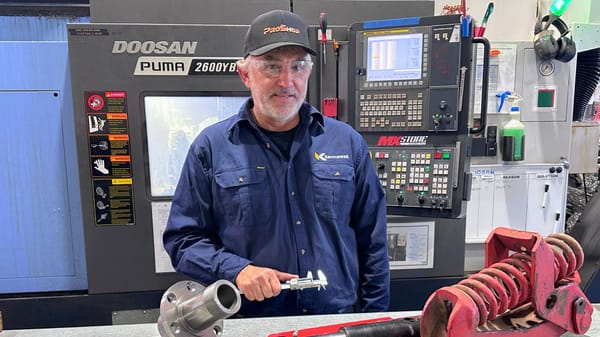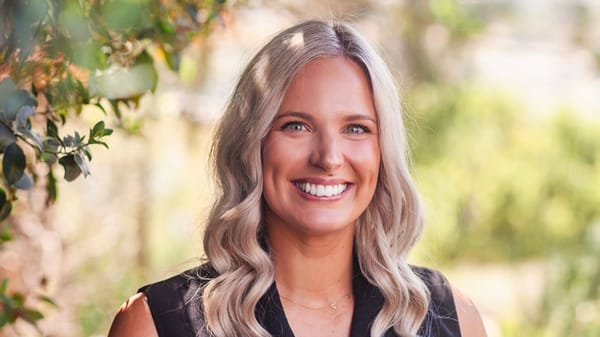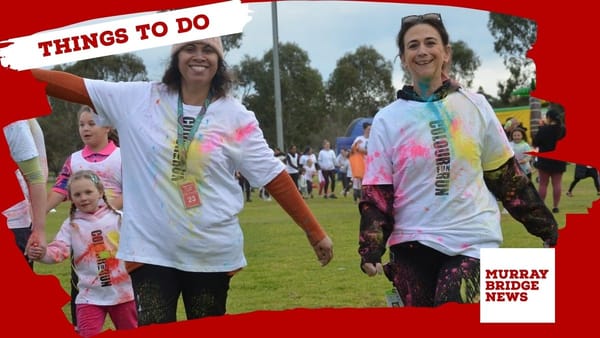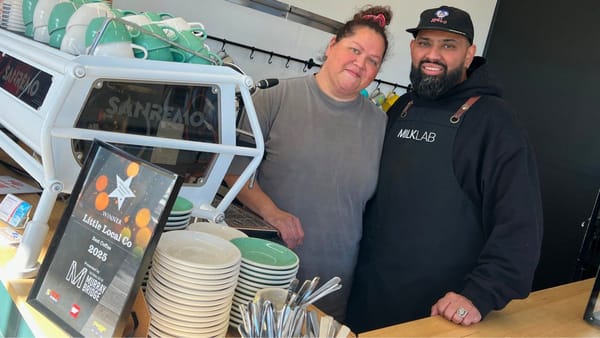Five years after his stroke, Phil Rosewall is back on his bike
What's more, the Murray Bridge cyclist is raising money for the Stroke Foundation through the Stride for Stroke.

Five years after the ride that nearly killed him, Phil Rosewall is back on his bike and raising funds to help others.
It was a Saturday when it happened.
The former junior cycling champion was at Mannum, in the middle of a 100-kilometre ride, when he suddenly collapsed.
He had suffered a stroke.
A rescue helicopter was needed to airlift him to hospital.
“A doctor was one of the first ones on the scene – she kept me alive,” he said.
“I went out and saw her a year later and she started crying.
“She didn’t think I’d survive.”
His road back to health was a long one, starting with a long stint at the Repat in Adelaide.
“When I first saw him he could barely make it to the bathroom with a walking frame,” a friend, Max March, recalled.
“Bike riding eventually got him from barely talking to almost back to normal.
“It probably took him two years to get him back to where he is.”
Those social rides, starting five months after the stroke, helped Mr Rosewall maintain his mental functioning as well as his physical health.
Every Wednesday a group of friends meets at his Murray Bridge East home for a ride, perhaps out to Mypolonga or along Bowhill Road, depending which way the wind is blowing.
Now he and his mates are striving to cycle 1000 kilometres during the month of November as a fundraiser for the Stroke Foundation.
Despite South Australia’s lockdown, which forced them to cancel a group ride they had planned for last weekend, they have ridden more than 800km to date.
The money they raise – more than $1000 so far – will be used to support stroke survivors and their families, and to fund medical research.
- Donate: www.stride4stroke.org.au.

An Australian has a stroke every nine minutes
Strokes kill more Australian women than breast cancer and more men than prostate cancer, according to the Stroke Foundation.
One Australian suffers a stroke – an interruption to blood flow in the brain – every nine minutes.
Many of the nation’s 475,000 stroke survivors experience weakness on one side of their bodies, behavioural changes, problems with thinking or communicating, or other symptoms.
But more than 80 per cent of strokes can be prevented, according to the foundation, by maintaining a healthy lifestyle: staying active, eating well, quitting smoking and drinking less alcohol.
If you see someone who may be having a stroke, the foundation recommends thinking FAST:
- Face: has the person’s mouth drooped down?
- Arms: can they lift both arms?
- Speech: is their slurred, and can they understand you?
- Time is critical – call 000 right away
- More information: strokefoundation.org.au/about-stroke.
You can help keep stories like this one free for everyone to read. Subscribe to Murray Bridge News today for just $5 a month.





